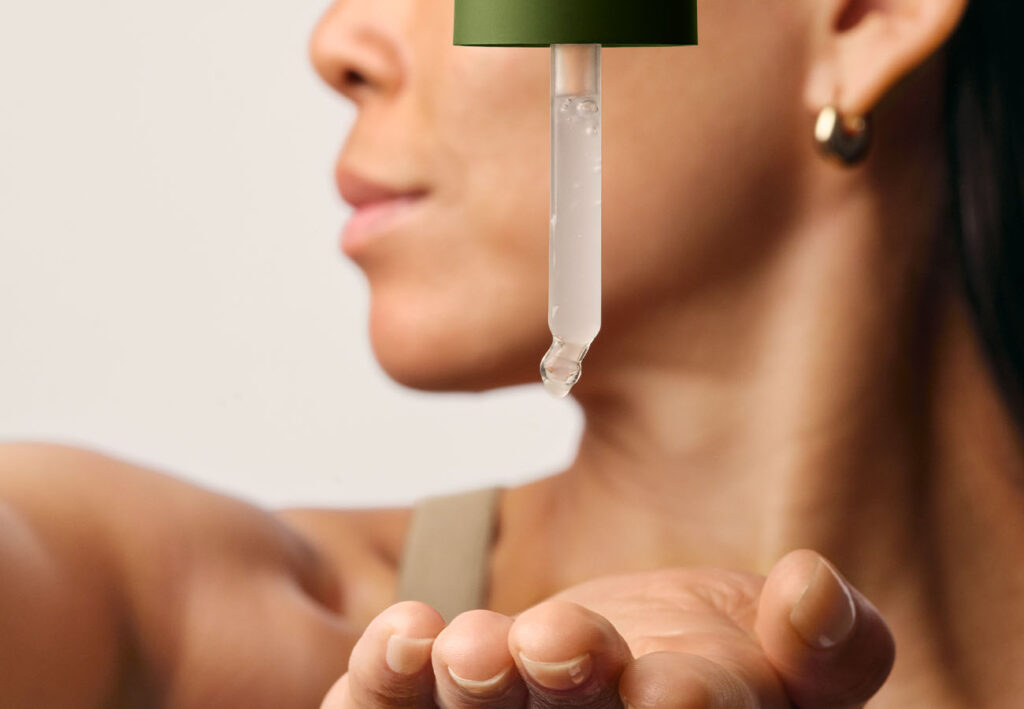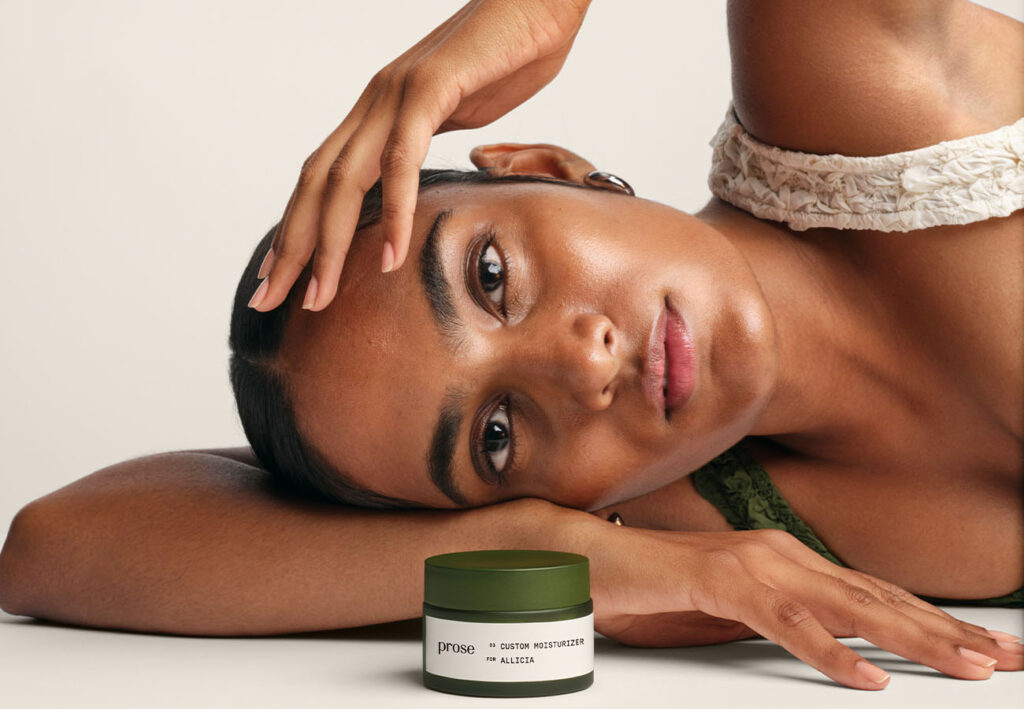Top 6 Skincare Tips for Winter
1. Moisturize, Moisturize, Moisturize
Cold winter weather comes with stiff winds and a drop in humidity that can quickly leach the moisture from your skin. You can replenish your skin’s moisture by:
- Drinking plenty of water
- Using high-quality skincare products that contain hydrating ingredients, such as hyaluronic acid, ceramides and oat oil
- Relying on gentle cleansers made for your skin type, so you aren’t accidentally stripping away much-needed moisture
2. Exfoliate (Gently!)
Exfoliation is a necessity for most people, especially if you have dry skin that seems to be obscuring your natural glow. Your approach to exfoliation can be as simple as using a washcloth to lightly rub in and wipe away your favorite cleanser. Or you can experiment with chemical exfoliants, such as lactic acid. Just do a test patch to check for reactions, and avoid using multiple products with exfoliating ingredients or you could irritate your skin.
3. Upgrade Your Winter Skincare With Products Featuring Gentle, Non-Drying Ingredients
Cleansers with harsh ingredients meant to clarify your skin can remove much-needed oils and leave your face feeling tight and scratchy. Even products you love that were great in summer can stop being the right fit once the temperatures drop.
Shop for a custom cleanser that’s formulated with your needs in mind to give your skin the nutrients it needs without any unnecessary extras. Skip low-quality products stuffed with fillers, such as phthalates, sulfates and parabens, and look for labels that say, “no GMOs” and “free of mineral oils.”
4. Use Sunscreen, Even When It’s Gloomy Outside
Sunscreen is a necessity year-round. Even if there’s 10 feet of snow outside, you should still wear a layer of sunscreen over your moisturizer. This is especially true during peak daylight hours between 10 a.m. and 4 p.m. Even cloudy days are a risk, as clouds only reduce UV exposure by about 50%. So, use sunscreen, and reapply as needed if you’re sweating while shoveling snow or going for a mid-winter hike
5. Limit Hot Showers
Hot showers can feel wonderful when you’re just coming inside from the cold, but steamy temps aren’t always as wonderful for your skin. Using hot water can strip your skin of moisture and leave your face and neck feeling dry and tight. Instead, use lukewarm water to wash and cool water to rinse.
As a bonus tip, try patting your skin dry instead of rubbing vigorously with a towel. This sidesteps extra exfoliation — those towel fibers can be rougher than you realized — and actually leaves a bit more water behind for increased hydration.
6. Stay Hydrated, Eat the Right Food, and Take the Right Supplements
Highlight the importance of eating the correct food to improve skin hydration (such as eggs, nuts, olives, avocados, fatty fish and bone broth). Be sure to mention to avoid processed foods and foods that cause digestive distress.
Lastly, focus on supplement routines: It may be beneficial to add vitamins A, E and D to your diet via foods or supplements (your doctor can help you with this.)
7. Don’t Skip the Skincare
School responsibilities, professional obligations, family photo shoots and seasonal fun — your winter schedule is jam-packed with activities and events. Still, that’s no excuse for skipping over your morning or evening skincare routine. Yes, you read that right. You should ideally be cleansing, using serums and moisturizing twice a day.
It takes just 5 to 10 minutes to run through a basic skincare ritual.
- First, you’ll cleanse. Use your custom cleanser to treat your oily, dry or sensitive skin with ingredients such as glycerin and bakuchiol.
- Next, you’ll treat your skin with custom serums designed for your specific needs, such as antiaging, dryness or hyperpigmentation. Perhaps your formula will have red fungi extract to promote firmness or peptides for a brighter, more even skin tone.
- Finally, you’ll seal in those nutrients and plump up your skin cells with a quality moisturizer full of hydrating and protecting ingredients, such as vitamin E, hyaluronic acid and ceramides.
Why you need to adjust your winter skin care routine
The reason you’re seeing changes in your skin during winter is of course due to harsher temps and wind, as well as reduced humidity. “More extreme weather conditions can exacerbate dryness, and skin sensitivities, and possibly induce redness, rashes, broken skin, and dermatitis,” Knight Fuchs says. Patients with rosacea and eczema as well as allergy-prone skin may be especially susceptible to wintertime skin issues. One way to help support your skin? Re-evaluate your products.
Look at your products and their ingredients
First, avoid the use of harsh soaps and instead use mild skin cleansers, like the Prose Custom Cleaner, which is customized for your skin care needs, including weather and environmental factors. Using products with skin-protecting ingredients such as fat-soluble vitamin C and vitamin E plus hyaluronic acid can help to lock in moisture. Exfoliating should be done with care (and maybe less frequently than in warmer months) to prevent irritating sensitive winter skin. Adding oatmeal and hyaluronic acid (break open a capsule and sprinkle the powder) to a warm bath also makes a great skin-softening treatment, Knight Fuchs says.
The best topical ingredients for improving winter skin hydration include polysaccharides like beta-glucan and hyaluronic acid, Knight Fuchs explains. Algae extracts, which can be found in the Prose Custom Moisturizer can be beneficial, too. You don’t need to go crazy though, if your current favorite skincare products are effective and beneficial, you might not need to totally clean out your cabinet.
“Stimulating ingredients like AHAs and retinol can be used as they can both stimulate the production of the skin’s natural moisture factors, but carefully, as they can be irritating and drying for dryer and sensitive skin types or when overused,” Knight Fuchs says.
In winter, your first instinct might be to reach for a soap, lotion or cream featuring petroleum jelly, lanolin, shea, or cocoa butter to relieve dry skin. However, Knight Fuchs says these ingredients should only be used in a pinch, as they can inhibit the production of the skin’s natural moisture factors and actually make dry skin problems worse in the long run. (If rashes, pain, or severe cracking occurs, you should consult with a derm.)
One product you should never skimp on even if the clouds are out: SPF. It’s important to protect the skin all year round. Topically, zinc-oxide based physical sunscreens can provide plenty of SPF benefits and help block both UVA and UVB solar rays.
Dial in Your Winter Skincare With Help from Prose
As sunny summer days tip toward blustery fall afternoons, it’s time to rethink your winter skincare routine. We can help. Take the Prose skincare consultation and get recommendations for product formulations that speak specifically to your skin’s needs.





